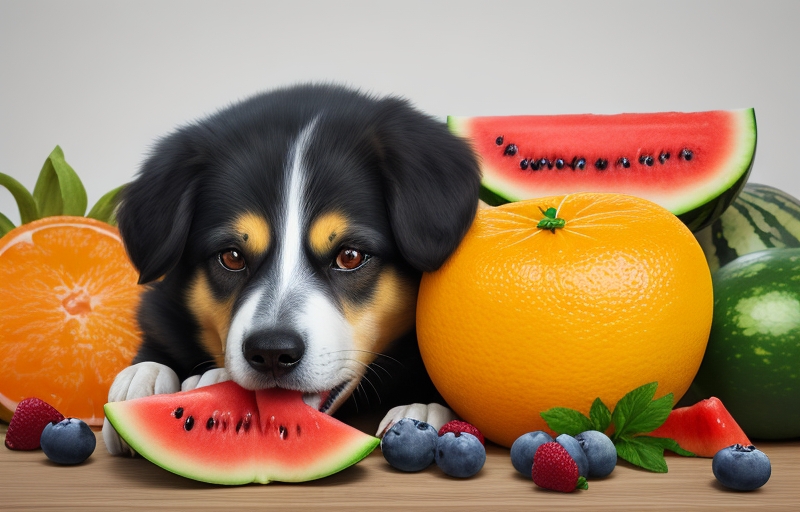Dogs need proper nutrition to thrive and lead healthy lives. Do Dogs Need Vitamin C? In the realm of canine health, one essential component often discussed is Vitamin C. In this article, we will delve into the world of dogs and Vitamin C, exploring its significance, sources, benefits, and the crucial question: Do dogs need Vitamin C?
Do Dogs Need Vitamin C?
Importance of Vitamins for Dogs
Vitamins play a pivotal role in maintaining the health and well-being of our furry friends. They contribute to various bodily functions, from immune system support to proper bone development.
Role of Vitamin C in Canine Health
Vitamin C, also known as ascorbic acid, is a water-soluble vitamin that serves as a powerful antioxidant. In humans, it’s a well-known remedy for the common cold. But what about our canine companions?
Do Dogs Produce Vitamin C Naturally?

Comparison with Humans
Humans are unable to produce Vitamin C naturally, making it an essential dietary component. However, dogs differ in this aspect. Unlike humans, most dogs can synthesize Vitamin C in their bodies.
Factors Influencing Vitamin C Synthesis in Dogs
While dogs can produce Vitamin C, several factors can influence their ability to synthesize an adequate amount. Age, health conditions, and stress levels all play a role.
Signs of Vitamin C Deficiency in Dogs
Common Symptoms

Identifying Vitamin C deficiency in dogs is crucial for proactive health management. Common symptoms include lethargy, joint pain, and a weakened immune system.
Impact on Overall Health
A lack of Vitamin C can have a significant impact on a dog’s overall health, affecting everything from their skin and coat to their ability to fight off infections.
Dietary Sources of Vitamin C for Dogs
Fruits Rich in Vitamin C
Incorporating Vitamin C into a dog’s diet can be done through fruits like oranges, berries, and watermelon. These not only provide essential nutrients but also make for tasty treats.
Vegetables High in Vitamin C

Vegetables such as broccoli, bell peppers, and spinach are excellent sources of Vitamin C for dogs. However, proper preparation is essential to ensure digestibility.
Considerations for Canine Diets
When planning a dog’s diet, it’s crucial to consider their breed, size, and individual health needs. Consulting with a veterinarian can provide tailored dietary advice.
Benefits of Vitamin C for Dogs
Immune System Support
Vitamin C plays a vital role in supporting a dog’s immune system, helping them ward off illnesses and infections effectively.
Joint Health and Mobility
For active dogs, Vitamin C contributes to joint health and mobility. This is particularly beneficial for breeds prone to joint issues.
Collagen Production for Skin and Coat
Adequate Vitamin C ensures proper collagen production, leading to healthy skin and a shiny coat in dogs.
How Much Vitamin C Do Dogs Need?

Recommended Daily Allowance
Determining the right amount of Vitamin C for a dog depends on various factors, including their size, age, and health status. The recommended daily allowance can vary.
Adjusting Dosages Based on Size and Breed
Smaller breeds may require less Vitamin C than larger breeds. Understanding the specific needs of a dog’s breed is crucial for proper dosage.
Administering Vitamin C Supplements to Dogs
Types of Supplements Available
Vitamin C supplements for dogs come in various forms, including chewable tablets and powder. Choosing the right type depends on a dog’s preferences and the owner’s convenience.
Consultation with a Veterinarian
Before introducing any supplements, it’s essential to consult with a veterinarian. Professional advice ensures that the supplementation is tailored to the dog’s individual needs.
Incorporating Vitamin C into Homemade Dog Treats
DIY Recipes for Vitamin C-Rich Treats
For dog owners who enjoy crafting homemade treats, there are simple recipes that incorporate Vitamin C-rich ingredients. These treats not only provide health benefits but also strengthen the bond between pets and owners.
Ensuring Safe Consumption
While homemade treats can be a delightful addition to a dog’s diet, it’s essential to ensure that the ingredients are safe for canine consumption. Avoiding harmful additives and focusing on natural sources of Vitamin C is key.
Tips for Choosing Commercial Dog Foods with Vitamin C
Reading Labels and Nutritional Information
When selecting commercial dog foods, it’s crucial to read labels and understand the nutritional content. Look for brands that prioritize the inclusion of essential vitamins, including Vitamin C.
Selecting Quality Brands
Not all commercial dog foods are created equal. Choosing reputable brands that prioritize quality ingredients ensures that a dog receives the necessary nutrients for optimal health.
Common Myths About Dogs and Vitamin C

Dispelling Misconceptions
There are several myths surrounding dogs and Vitamin C. Dispelling these misconceptions is essential for informed decision-making regarding a dog’s dietary needs.
Clarifying Facts for Pet Owners
By providing accurate information, pet owners can make educated choices that positively impact their dogs’ health. Clarifying facts helps dispel unnecessary concerns.
Conclusion
In conclusion, understanding the role of Vitamin C in a dog’s health is crucial for responsible pet ownership. From preventing deficiencies to supporting overall well-being, Vitamin C plays a vital role in the canine diet. Whether through natural food sources or supplements, providing adequate Vitamin C can contribute to a happy and healthy life for our beloved furry companions
Read Also: Vitamin C for Dogs: Can Dogs Have Vitamin C
Frequently Asked Questions (FAQs)
What Happens if My Dog Doesn’t Get Enough Vitamin C?
If a dog doesn’t receive enough Vitamin C, it may experience weakened immunity, joint problems, and skin issues. Regular veterinary check-ups can help monitor and address any deficiencies.
Can I Use Human Vitamin C Supplements for My Dog?
While some human supplements may be safe, it’s crucial to consult a veterinarian before giving them to dogs. Canine-specific supplements are often formulated to meet their unique needs.
Are There Natural Alternatives to Vitamin C Supplements?
Yes, many natural alternatives provide Vitamin C, such as fruits and vegetables. Incorporating these into a dog’s diet can be an effective and tasty way to boost their Vitamin C intake.
How Can I Tell if My Dog Needs Vitamin C?
Observing signs of lethargy, joint pain, or a dull coat can indicate a potential need for Vitamin C. Consulting with a veterinarian helps determine the best course of action.
What Should I Do If My Dog Shows Signs of Vitamin C Overdose?
If a dog shows signs of Vitamin C overdose, such as diarrhea or vomiting, it’s crucial to contact a veterinarian immediately. Adjusting the dosage or discontinuing supplementation may be necessary.

2 thoughts on “Do Dogs Need Vitamin C? Understanding Canine Health and Nutrition”